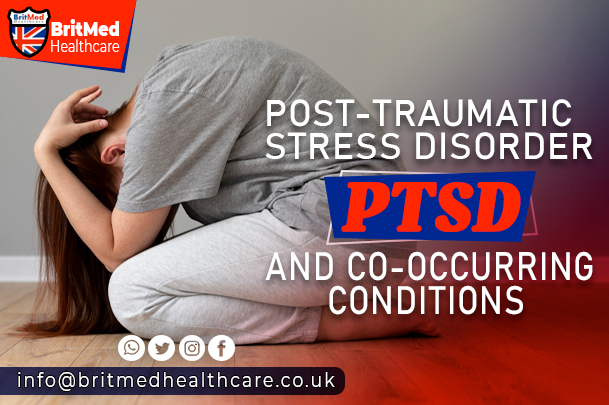Post-Traumatic Stress Disorder (PTSD) and Co-occurring Conditions
Post-Traumatic Stress Disorder (PTSD) is a mental health condition that can have a profound impact on an individual’s life. Characterized by symptoms of flashbacks, nightmares, avoidance, and hyperarousal, PTSD is often triggered by a traumatic event, such as combat, assault, or natural disasters. While PTSD can be a debilitating condition on its own, it is not uncommon for individuals to experience co-occurring mental health conditions, further exacerbating the challenges they face.
Co-occurring Conditions with PTSD
Research has consistently shown that individuals with PTSD are more likely to develop co-occurring conditions, including depression, anxiety disorders, substance use disorders, and suicidal ideation. The prevalence of these conditions can vary depending on factors such as the severity of PTSD symptoms, the nature of the traumatic event, and the individual’s overall mental health history.
The Importance of Seeking Help
It is essential for individuals experiencing PTSD and co-occurring conditions to seek help from a qualified mental health professional. Untreated PTSD can lead to significant distress, impairment in social and occupational functioning, and increased risk of suicide. Furthermore, delaying treatment can perpetuate the development of co-occurring conditions, making recovery more challenging.
Treatment Options for PTSD and Co-occurring Conditions
Fortunately, there are effective treatments available for PTSD and co-occurring conditions. These may include:
- Cognitive-Behavioural Therapy (CBT): A type of psychotherapy that helps individuals identify and change negative thought patterns and behaviours associated with PTSD.
- Exposure Therapy: A specific type of CBT that involves gradually exposing individuals to situations or stimuli that trigger their PTSD symptoms.
- Medications: Such as selective serotonin reuptake inhibitors (SSRIs) and serotonin-norepinephrine reuptake inhibitors (SNRIs), which can help alleviate symptoms of depression and anxiety.
- Mindfulness-Based Interventions: Techniques such as mindfulness meditation and yoga can help reduce symptoms of anxiety and depression.
- Group Therapy: A type of therapy that involves group sessions with others who are experiencing similar challenges.
Seeking Help Today
If you or someone you know is experiencing symptoms of PTSD and co-occurring conditions, it is essential to seek help today. There are numerous resources available to support individuals in their recovery journey.
- National Health Service (NHS) Services: In the UK, the NHS offers a range of mental health services, including trauma-focused therapy and medication management.
- Charities and Support Groups: Organizations such as Combat Stress and SSAFA provide emotional support, guidance, and practical help to individuals affected by PTSD.
- Private Mental Health Services: Many private mental health providers offer specialist treatment for PTSD and co-occurring conditions.
Conclusion
Post-Traumatic Stress Disorder (PTSD) is a complex condition that requires comprehensive treatment. By seeking help from a qualified mental health professional, individuals can access evidence-based treatments that address their unique needs and improve their overall well-being. It is essential to break the stigma surrounding mental health conditions and encourage those affected to seek help today.
References:
https://www.nimh.nih.gov/health/topics/post-traumatic-stress-disorder-ptsd
https://www.nhs.uk/mental-health/conditions/post-traumatic-stress-disorder-ptsd/overview/
Websites:
Britmed Healthcare: https://britmedhealthcare.co.uk/
Nightingale Hospital: https://www.nightingalehospital.co.uk/
Top Doctors: https://www.topdoctors.co.uk/doctor/ahmed-el-missiry
You can also book, Contact us on WhatsApp 08009708017




